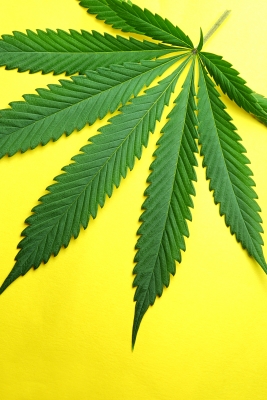Marijuana: benign or dangerous?
The following is a summary and discussion of an article written by Hal Arkowitz and Scott O. Lilienfeld, originally published by Scientific American in March of 2012.
According to a United Nations report in 2002, marijuana is the most popular illegal drug used worldwide. A 2007 study performed by Michigan State psychologist Louisa Degenhardt and colleagues found that 43% of U.S. adults over the age of 18 have tried marijuana at least once. The famous Monitoring the Future study, which researches the behaviors and beliefs of American adolescents and adults, found that 14% of eighth graders and 35% of high school seniors had used marijuana at least once in the previous year. And with its recent legalization for medical use in 20 states, and the new legislation in Colorado, it’s acceptance is sure to increase.

One of the most common questions the public has about marijuana is it’s potential for dependence. Will its users become hooked? Fortunately, there is a large body of data on the subject already. Past studies indicate that, while it is a real danger to certain groups of individuals, marijuana dependence is a relatively rare occurrence. For instance, a large-scale 1994 study by James Anthony at the NIDA found that only about 9% of those who had tried marijuana eventually fit the DSM criteria for dependence. Compared to the rate of dependence for other substances (15% for alcohol, 17% for cocaine, 23% for heroin; and 32% for nicotine), this indicates that marijuana has a lower risk of creating addiction than some legal drugs.
Marijuana has also been referred to by many as a “gateway drug.” Indeed, many studies have found that a majority of those who use other illicit drugs, such as cocaine and heroin, had used marijuana first. But the authors do make an excellent point about this finding: by itself, it does not prove that using marijuana leads to the use of other drugs. It may simply be that those who use illicit drugs are just prone to drug use in general, including the use of pot. In addiction, they argue that most individuals now using marijuana used nicotine or alcohol first. Would that make either of these substances a kind of gateway drug, as well? If so, what makes marijuana more risky than these legal drugs?
Medical marijuana has enormous benefit for patients with many types of disease, from glaucoma to AIDS. However, despite its low rate of dependence and the lack of evidence to prove that it is a “gateway drug”, marijuana use poses other threats. Heavy use of marijuana, as with many other legal and illegal substances, can lead to severe health consequences. Studies show that considerable marijuana use leads to increased tolerance, respiratory and cardiovascular symptoms, memory impairment and withdrawal symptoms. In predisposed populations, marijuana use can be a trigger for psychiatric disorders, like schizophrenia.
The recent legalization of marijuana by the State of Colorado seems like an appropriate reason to revisit what the evidence says about the risks associated with its use. So, what do our registrants have to say about pot usage? Is it a relatively harmless recreational drug or is it a dangerous substance who’s use should not be taken lightly?
Read the original article online at: http://www.scientificamerican.com/article.cfm?id=the-truth-about-pot
Other references: http://medicalmarijuana.procon.org/view.resource.php?resourceID=000881


0 Comments